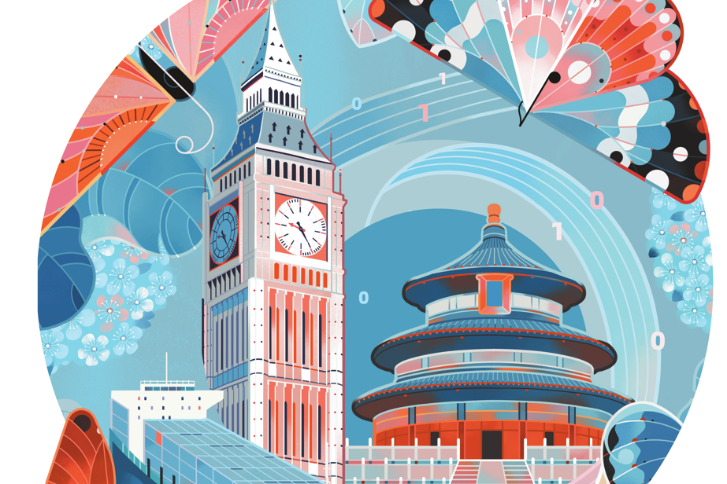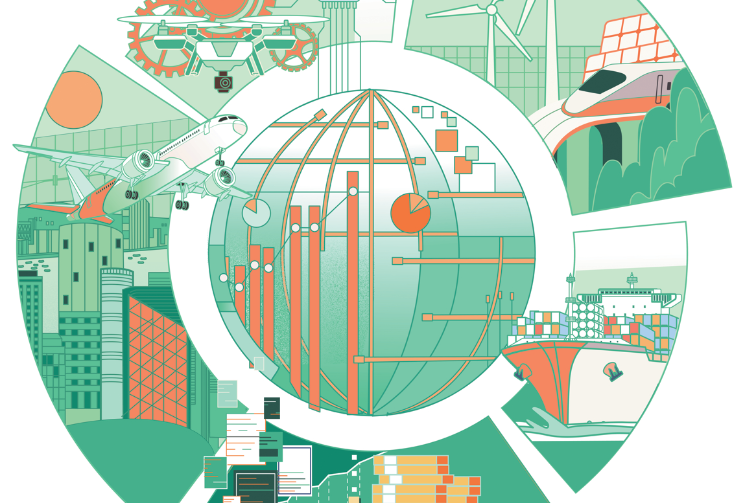Hong Kong poised to benefit from Shenzhen-based reforms


Both Hong Kong and Shenzhen are undergoing a critical period in their development. We all know that Hong Kong is facing one of the most severe governance crises in its history.
Shenzhen is also facing institutional constraints and barriers to further development. There is groundbreaking news from the central government that Shenzhen will be built into a pilot demonstration area.
It means that the city will adopt wide-ranging reforms covering the legal, financial, medical, and social sectors.
There are comments that Shenzhen is going to replace Hong Kong as the leading international city in the country. Such opinions make sense, but do not fully reveal the situation. To analyze this, let's look into the implications of the plan to Hong Kong in three perspectives.
The first perspective concerns "reform". Shenzhen is well-known as the first special economic zone of the country.
It was the original site of the country's reform and opening-up 40 years ago.
Shenzhen has been transformed from a simple fishing village into a modern metropolis with a population of about 13 million and GDP of about $346 billion in 2018.
The history of Shenzhen is the history of China's reform and opening-up. The latest plan is not an entirely new policy but an upgraded version of the previous reforms. For instance, based on the experience and pilot program at the Qianhai Shenzhen-Hong Kong Modern Service Industry Cooperation Zone, Shenzhen has already explored reforms in foreign-exchange management and cross-border financing.
All this experience will be extended and broadened under the new plan, and the city is expected to be a reform model for other Chinese cities in the future. Shenzhen's experience tells us that the reform engine is vital to a city's development.

The second perspective is "internationalization". The highlight of the new plan is to connect Shenzhen with the international community.
One of the strategic goals of the plan is to make Shenzhen a nationwide model of high-quality development, as well as a hub of innovation, entrepreneurship, and creativity with international influence by 2035. For instance, international organizations and companies will be encouraged to set up branches or headquarters in Shenzhen.
To facilitate the goal, Shenzhen will be given space to experiment and make flexible changes to laws, regulations, and local ordinances to boost its international status.
The third perspective is to respond to the aforementioned comments. Rather than replacing Hong Kong, Shenzhen will grow into a stronger city to create synergy with Hong Kong.
The new plan is a key part of the national strategy for the Guangdong-Hong Kong-Macao Greater Bay Area development plan. The vision of the Bay Area plan is that the national strategy will provide sufficient capacity for all the relevant development of cities, which means that it's not a zero-sum game for the partner cities.
Instead, if any city can achieve further development, all the other cities in the Bay Area will benefit from it. Shenzhen as the designated high-tech hub can provide a Silicon Valley-like driver for the regional development. What is more, the unique advantage of Hong Kong — such as the rule of law and free capital flows — will have a more significant impact in future.
According to the State Council, the new Shenzhen plan is also to enrich the implementation of "one country, two systems".
It is evident that the building of the demonstration area will help deepen reform and comprehensively expand the opening-up.
The benefits to the Bay Area will also help Hong Kong by creating a better team in the future.
The plan will promote connections between Shenzhen's financial market and those in Hong Kong and Macao, as well as expand financial regulations and the portfolio of financial products available to trade bonds and foreign exchange. Moreover, Hong Kong citizens who live or work in Shenzhen would be granted residential status in future.
The critical question is whether Hong Kong is ready to fully embrace these challenges and opportunities as soon as possible.
We are undergoing a period of serious social disorders and face some economic challenges. Anti-government protests have continued for nearly three months, causing unprecedented tension in society.
What we now need most is mutual trust, just as Dan Quinn, a famous US football coach, once said: "We have a term: Trust your training, trust your teammate, and trust yourself." Trust is always the key element in making a higher team and overcoming the challenge.
The author is research officer of the One Country Two Systems Research Institute.


































